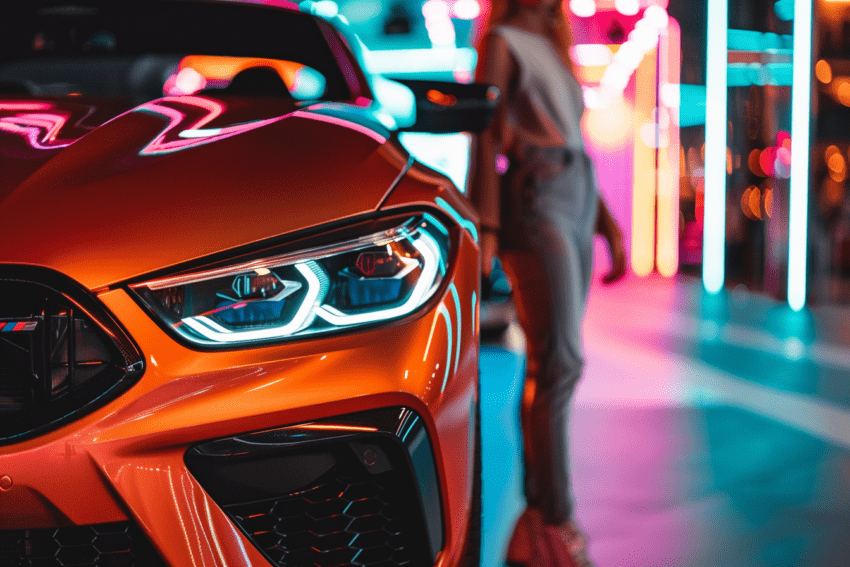
The automotive industry is experiencing a significant transformation, thanks to the influence of content creators and social media. In recent years, content creators have become a driving force in the automotive industry, with their ability to reach millions of people through their channels. Social media platforms such as Instagram, YouTube, and TikTok have provided a platform for these creators to showcase their love for cars and share their experiences with their followers.
As a result, many automotive brands have recognized the importance of working with content creators and influencers to promote their products. These collaborations have led to the development of creative marketing campaigns that are more engaging and relatable to consumers. Automotive brands are now investing more in social media marketing, with a focus on creating content that resonates with their target audience.
In this article, we will explore how content creators and social media are transforming the automotive industry. We will examine the impact of social media on the way automotive brands market their products, and how content creators are changing the way people think about cars. We will also discuss the challenges that automotive brands face when working with content creators and how they can overcome them.
The Rise of Influencer Marketing in the Automotive Sector
In recent years, the automotive industry has witnessed a significant shift in its marketing strategy. With the rise of social media, content creators, and influencers, automotive brands are now leveraging the power of influencer marketing to reach their target audience effectively. In this section, we will explore the impact of digital personalities, and how successful brand and creator collaborations have transformed the automotive industry.
Understanding the Impact of Digital Personalities
Digital personalities, also known as influencers, are individuals who have built a following on social media platforms such as Instagram, YouTube, and TikTok. These individuals have a significant influence over their followers’ purchasing decisions and can help brands reach a wider audience. The automotive industry has recognized the potential of influencer marketing and has started collaborating with digital personalities to promote their products.
Influencers can create engaging content that resonates with their followers, which can lead to increased brand awareness and sales. They can also provide valuable feedback to brands on their products, helping them improve their offerings. As a result, automotive brands are investing heavily in influencer marketing, and the trend is only expected to grow in the coming years.
Case Studies: Successful Brand and Creator Collaborations
Several automotive brands have successfully collaborated with content creators and influencers to promote their products. For example, Mercedes-Benz partnered with lifestyle influencer Chiara Ferragni to launch their new A-Class model. The campaign generated over 15 million impressions and helped Mercedes-Benz reach a younger audience.
Another successful collaboration was between BMW and YouTuber Casey Neistat. BMW provided Neistat with a BMW i8 to promote on his channel, which resulted in over 11 million views and significant exposure for the brand.
These examples demonstrate the power of influencer marketing in the automotive industry. By collaborating with digital personalities, automotive brands can reach a wider audience, generate buzz around their products, and ultimately increase sales.
In conclusion, the rise of influencer marketing has transformed the automotive industry’s marketing strategy. By leveraging the power of digital personalities, automotive brands can effectively reach their target audience and increase sales. As the trend continues to grow, we can expect to see more successful brand and creator collaborations in the future.
Evolving Consumer Behavior and Decision-Making
As the automotive industry continues to evolve, so do consumer behaviors and decision-making processes. With the rise of content creators and social media, consumers have more access to information than ever before. This section will explore the role of social media in car purchasing and analyze trends from ownership to experience.
The Role of Social Media in Car Purchasing
Social media has become a powerful tool for consumers when it comes to making purchasing decisions. Platforms like Instagram and YouTube allow users to follow their favorite content creators who often showcase their cars and share their experiences. This type of content can influence a consumer’s perception of a car and ultimately impact their decision to purchase.
Additionally, social media allows consumers to research and compare cars before ever stepping foot in a dealership. They can read reviews, watch videos, and even connect with other car enthusiasts to get a better understanding of a car’s features and performance. This wealth of information can empower consumers to make more informed decisions when it comes to purchasing a car.
Analyzing Trends: From Ownership to Experience
In the past, car ownership was seen as a status symbol. However, with the rise of ride-sharing services and subscription-based models, ownership is no longer the only option. Consumers are now more interested in the experience of driving a car rather than owning one.
This shift in consumer behavior has led to new business models, such as car-sharing and rental services. These services allow consumers to experience a variety of cars without the commitment of ownership. Additionally, car manufacturers are now focusing on creating memorable experiences for their customers, such as offering test drives and exclusive events.
In conclusion, the automotive industry is experiencing a significant transformation due to the influence of content creators and social media. Consumers are now more informed and have more options than ever before. As the industry continues to evolve, manufacturers and dealerships must adapt to meet the changing needs and expectations of consumers.